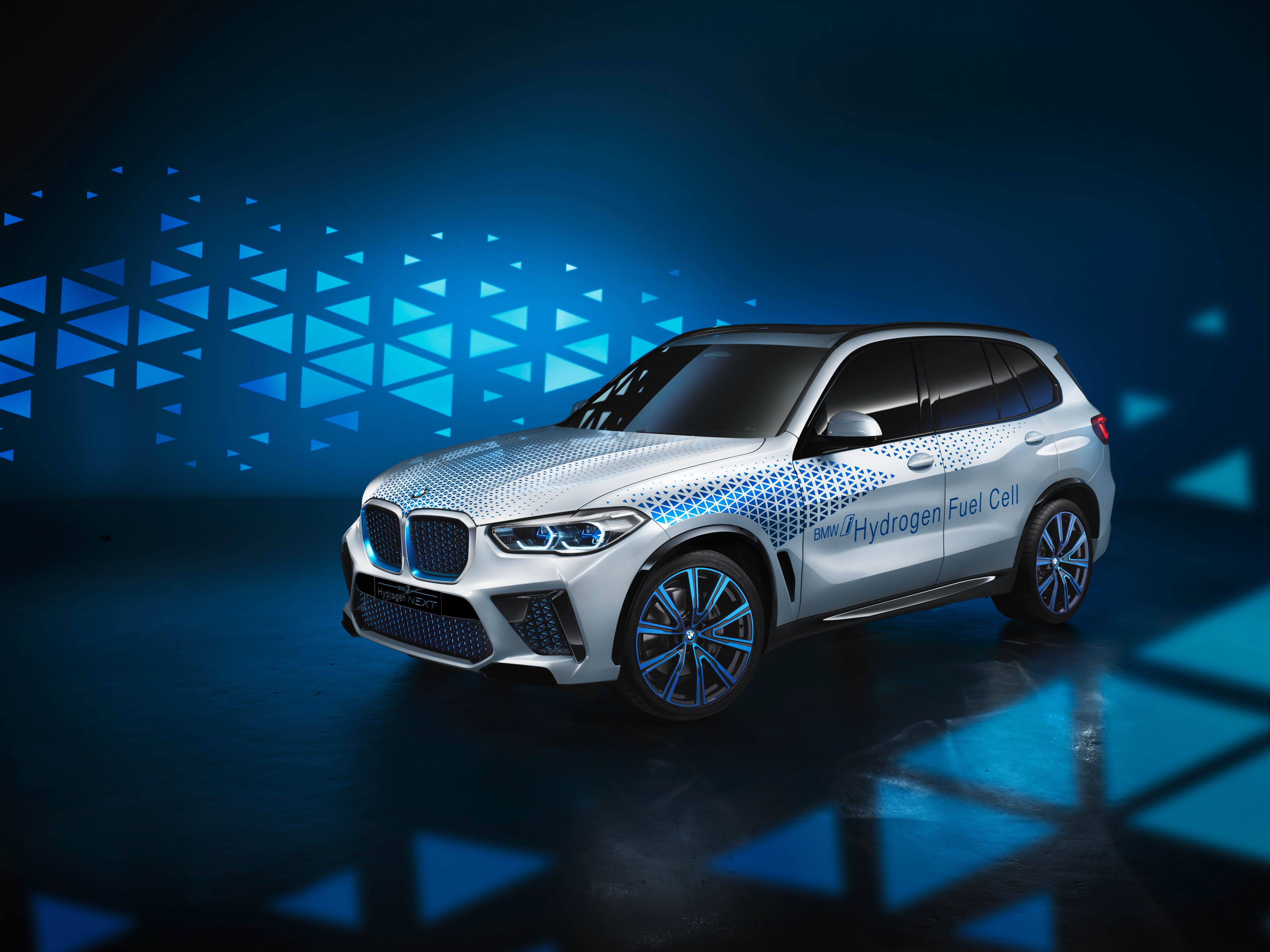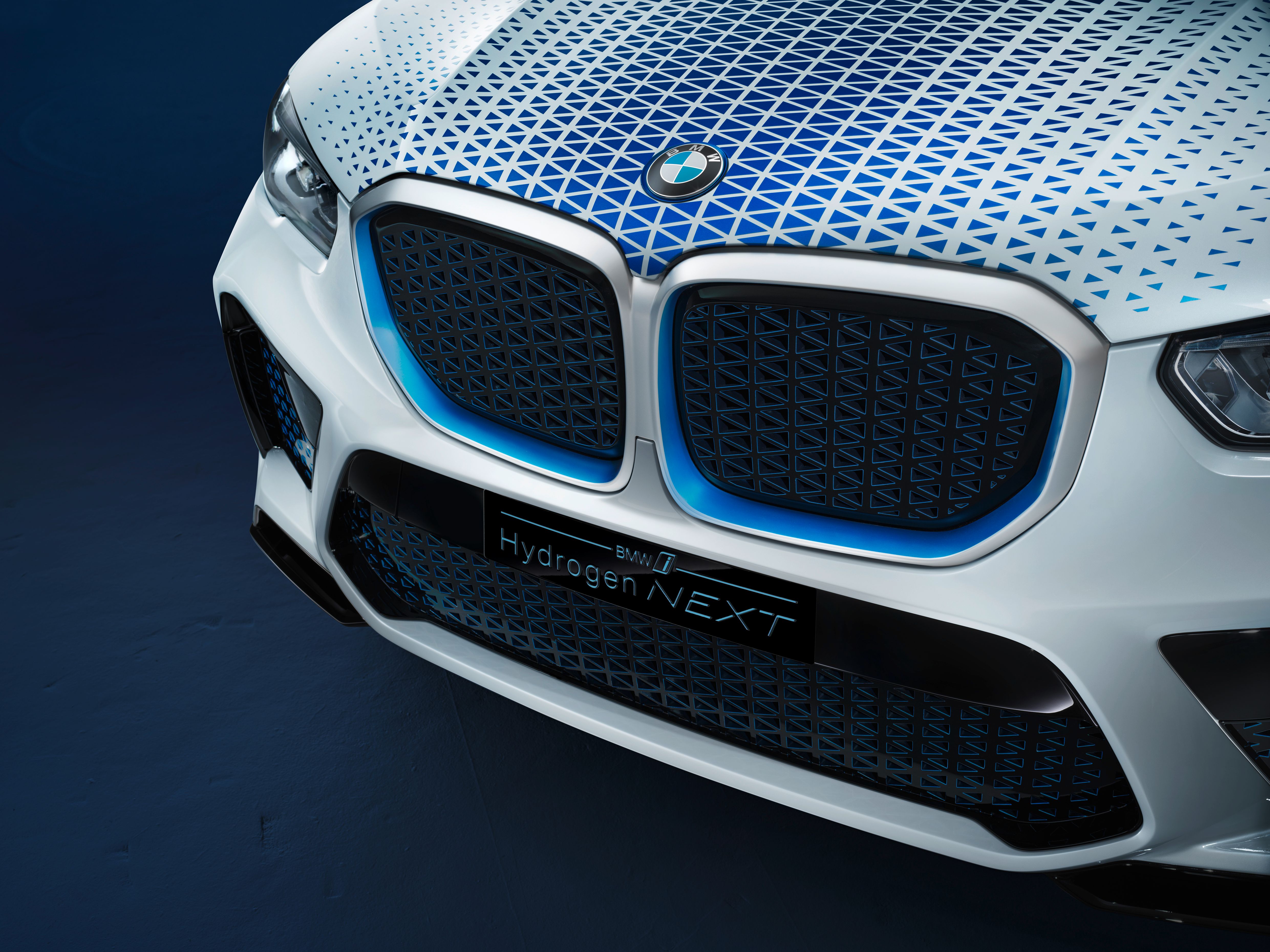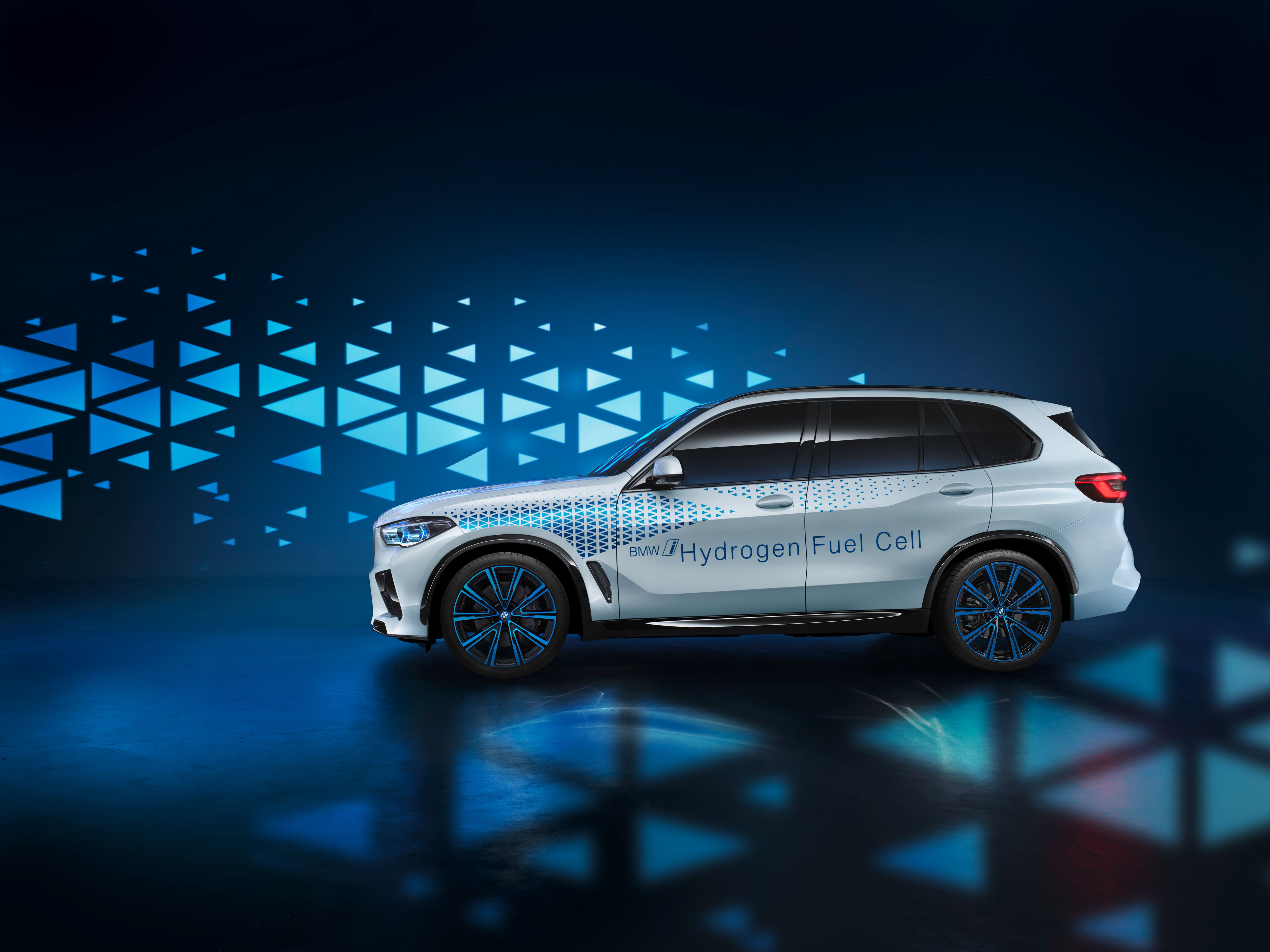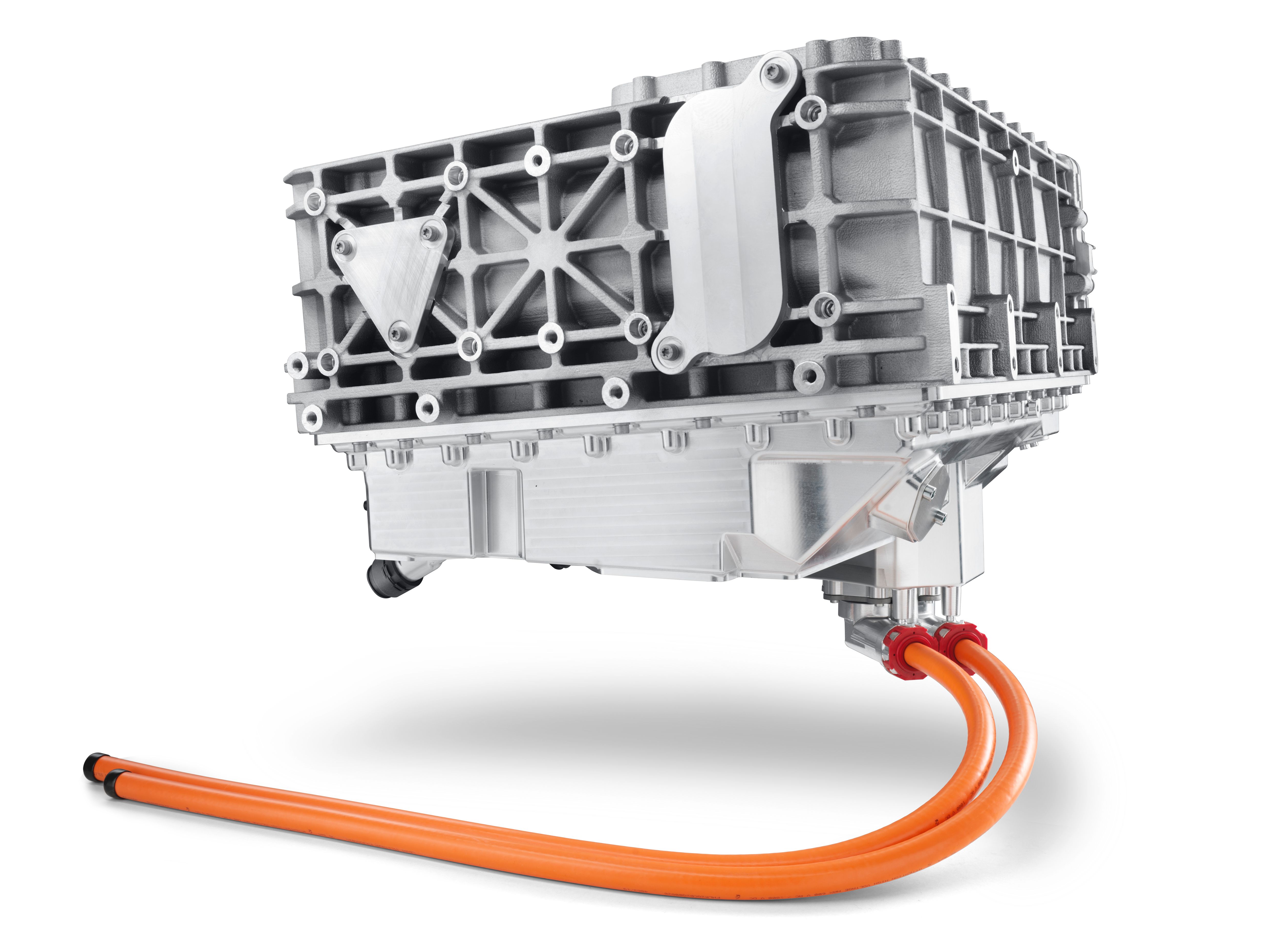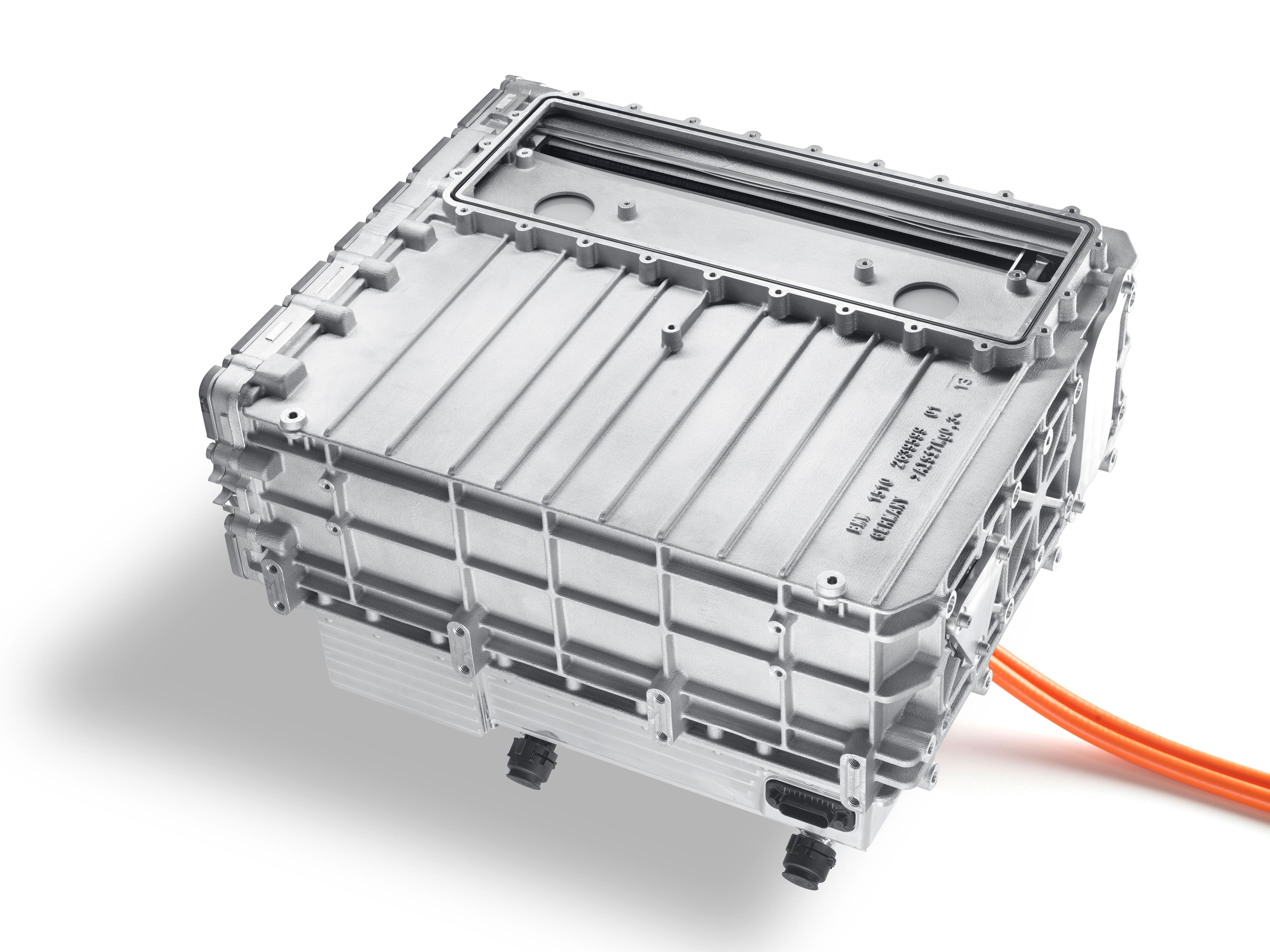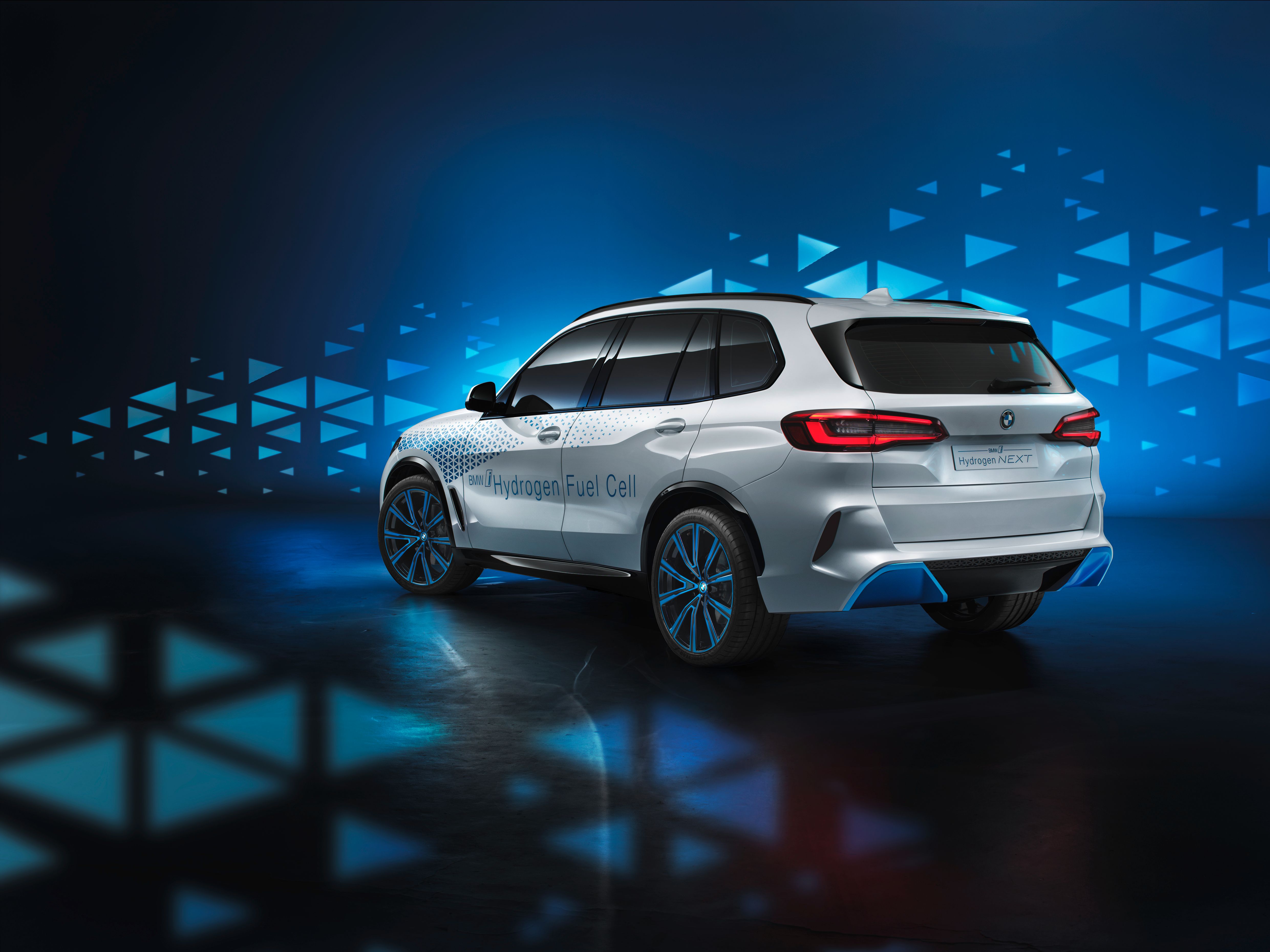BMW has an exciting relationship with hydrogen-powered vehicles. Not only did it create engines that run on hydrogen (like the hydrogen-powered seven series V-12 a decade ago), but it signed an agreement with Toyota in 2013 for the development of a hydrogen-powered car. Since then, we have seen a 5 series GT with a Fuel Cell system, and, even more remarkably, a BMW hydrogen i8. Then, in 2016, BMW officials supported the claim about hydrogen's future with the comment about the fuel cell car in 2021. It all points out that that car is the BMW i Hydrogen NEXT as they have called it during the reveal at the Frankfurt Motor Show.
BMW i Hydrogen NEXT Could Pave the Way For A Proper, Mass-Produced BMW Fuel Cell Car
Revealed wearing a striking white paint job with prominent blue details, the BMW i Hydrogen was a hard thing to miss at a never sparser Frankfurt Motor Show. The car looks just like a cosmetically enhanced standard X5. BMW didn't even bother to provide us with the powertrain details. Instead, we only got a confirmation that the new fuel cell car (possibly a production version of the one you see in the pics) will reach the market in 2021.
BMW and Toyota's agreement about the development of a Fuel Cell powered car does include the development of the hydrogen refill infrastructure. With the so-called Hydrogen Council that now has over 60 members, the Japanese and German company plans to create a global initiative for "a hydrogen-fuelled energy revolution." In short, this means the development of hydrogen refill stations and the creation of the sustainable supply chains for the production of economically sound fuel-cell-powered cars.
The BMW i Hydrogen Next Has a Toyota Fuel Cell Stack In Its Belly
As is the case with the BMW 5 Series GT Hydrogen Fuel Cell, the new BMW i Hydrogen NEXT has a Toyota Fuel Cell stack in its belly.
Fuel Cell Hydrogen Propulsion Seems Like A Better Deal Than EVs With Batteries
The main advantage behind the development of the Fuel Cell BMW X5 is extremely low running costs and fantastic efficiency.
The thing is that the infrastructure needed for the mass-production of these cars is basically non-existent. I suspect that by 2025, BMW and Toyota plan to lobby for the development of the hydrogen refill stations all over the world.
Conclusion
I am afraid that with such a strong push for the electric vehicles, Fuel Cell propulsion will remain on the outskirts of our necessities. BMW seems to have been working on the technology since the eighties, but aside from a few hundred vehicles, it never sold the Fuel Cell cars on the mass market. Honda did it with the Clarity, Hyundai did it with the ix35 and Tucson Fuel Cell, while Toyota does it with the Mirai. It seems that the i Hydrogen Next, despite all of its potential, waits for better infrastructure and some real-world acknowledgment before it becomes a viable option for mass production. After all, this sentence from the BMW i Hydrogen Next press release explains it best:
"The BMW Group would start offering fuel cell vehicles for customers in 2025 at the earliest, but the timing very much depends on market requirements and overall conditions."
Basically, BMW says that it will start selling Fuel Cell cars if there's proper infrastructure in place. It will not be in place by 2025. I know that because even after ten years of the development of the electric charging infrastructure, we are still far from complete adoption of electric cars. The i Hydrogen Next seems to be a fantastic SUV, but I feel that it will remain just a curiosity. I hope BMW and Toyota change my mind. The BMW i Hydrogen Next, 5 Series GT Fuel Cell, and Toyota Mirai could not!
Further reading
Read our full review on the 2018 BMW iNext Concept.

